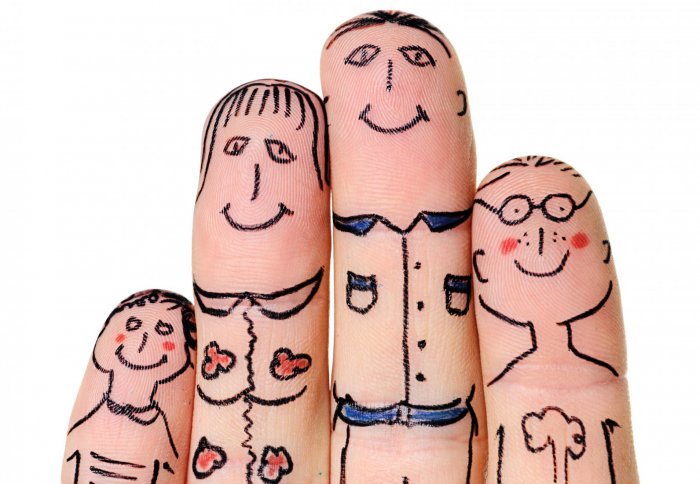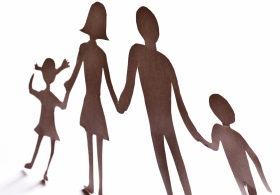Family dynamics

A mums and dads buddy scheme; how medics help new students feel at home
The red, blue and yellow branded room is bustling with movement as over 230 children hunt tirelessly for their parents in the crowded space. But these aren’t toddlers who have lost their way in a supermarket – it is the annual ‘mums and dads’ night for Imperial medics, where freshers are allocated buddies from the older years to help them feel at home.
The buddy scheme was set up five years ago by Imperial College School of Medicine Union (ICSMU), formalising a tradition within Imperial clubs and societies where members in the older years take younger students under their wing.
“Students find it easy to build relationships with their peers,” notes Student Services Manager Janette Shiel. “They can socialise with them and ask questions they wouldn’t feel comfortable asking academic staff.” ICSMU President Shiv Vohra agrees: “Starting university can be a really daunting experience,” he says. “It can feel like you are just another face, so it is nice to know someone is looking out for you – even if you aren’t officially related,” he adds. Shiv was ‘adopted’ by his ‘granddad’ Andrew Peetamsingh. “Andrew has given me so much advice over the years and, if he ever saw me at an event, he’d always come over and buy me a drink. Now the whole of his medics family is really proud of him as he has become a doctor.”
Unlike many universities where freshers are automatically allocated buddies, at Imperial the student-led scheme is completely voluntary. What started as an icebreaking activity for freshers is now fully embedded in medical school tradition and, this year, 75 per cent of new medics signed up to get a mum or dad.
Pastoral support
Mums and dads are allocated both by their course and their interests. ICSMU organises three separate schemes for undergraduates, postgraduates and those studying biomedical science. “The scheme works because our students are welcomed and supported in a more relaxed and informal way by their peers, which can be more effective than a formal approach,” says Dr Mike Emerson, Senior Tutor for years one and two in the Faculty of Medicine. “They also provide reassurance and answers to questions that academic and administrative staff don’t always know, simply because they are going through or have gone through the same course.”
ICSMU welfare officer Steve Tran highlights the pastoral benefits of the scheme during times of stress: “Having someone to tell you it is ok or provide you with a shoulder to cry on is incredibly important.”
Shiv tells prospective students about the scheme at Open Day. “I think it is a unique selling point of our medical school, as freshers often struggle to interact with older years unless they have lectures together. As the mums and dads night is one of our first Welcome Week events in the Charing Cross Campus’s Reynolds Bar, this culture is ingrained from the start,” he adds.
At the event, all new mums, dads and ‘children’ get labels with their names on and they have to seek out their family members. As students progress in their medical degree they continue in the scheme and go onto adopt grandchildren and even great grandchildren. Often entire families come down to the event to welcome their new children.
Although the scheme tends to appeal most to first years, the aim is to retain contact throughout medical school and beyond. “I started at Imperial in 2008,” says Shiv, “and I am about to become a great granddad – I already have a few sons and a grandson and granddaughter!” Shiv explains that these connections can prove to be very useful as families often help each other to get research projects over the summer or jobs when they graduate.
In addition to the initial welcome event, a lot of families take it upon themselves to organise barbeques, pub quizzes or banquets where the whole family gathers from years one to six. “How often you see each other really depends on the family dynamic,” says Steve. Inevitably not all pairings are successful but the scheme is flexible and students can change families or be ‘adopted’. Steve was originally allocated a dad from the scuba diving club who wasn’t as passionate as he was, so he didn’t often attend. As a result, Steve was ‘adopted’ by another medic in the club called Jack Roberts, who is now in his final year. “Jack has always been there to answer any questions – from advice about coursework and where to live, to where I should get my hair cut!”
Back in the Reynolds Bar the newly united families are chatting away happily and, hopefully, starting to form what Shiv pinpoints as the ultimate aim of the scheme; relationships that last long after they leave the College.
Article text (excluding photos or graphics) © Imperial College London.
Photos and graphics subject to third party copyright used with permission or © Imperial College London.
Reporter
Press Office
Communications and Public Affairs
- Email: press.office@imperial.ac.uk
